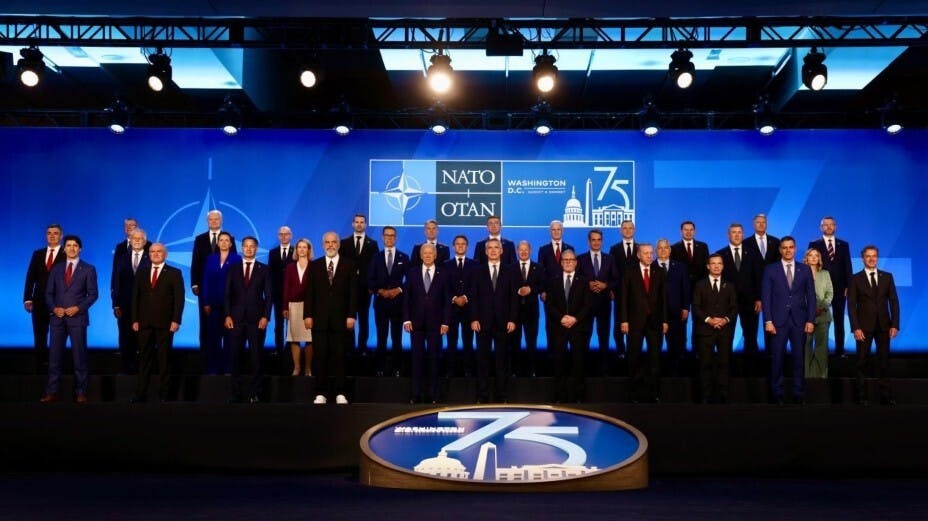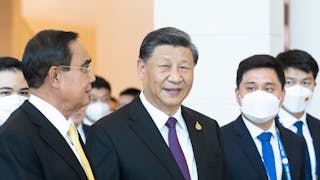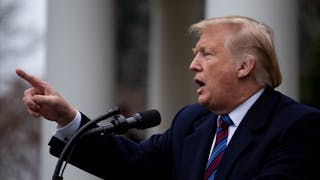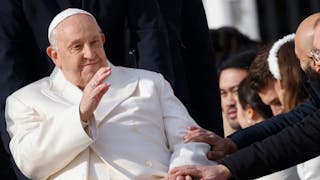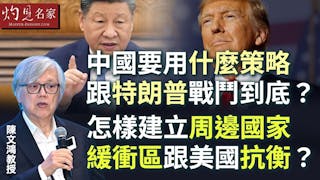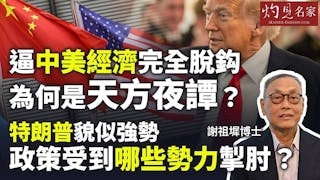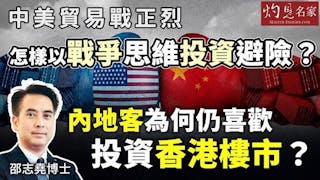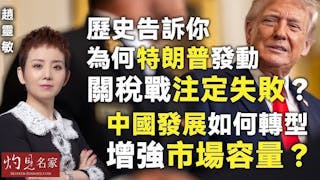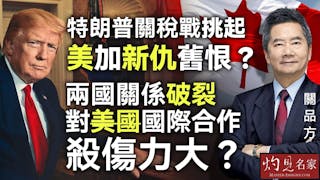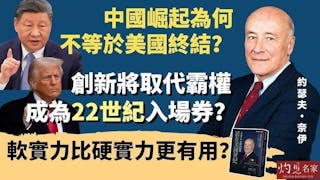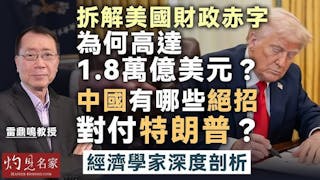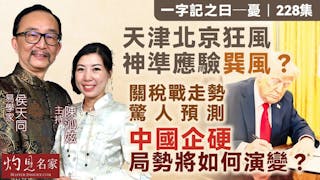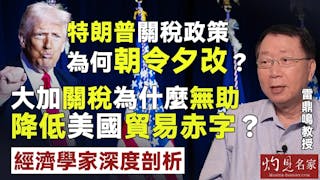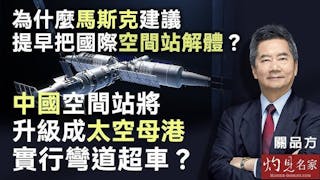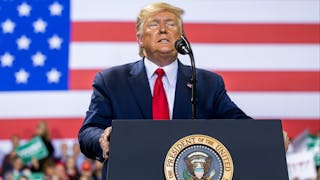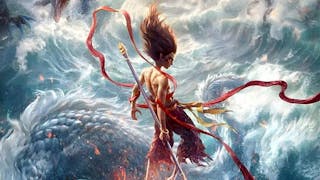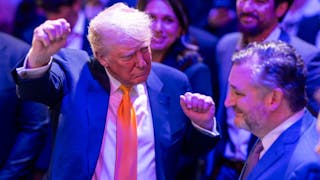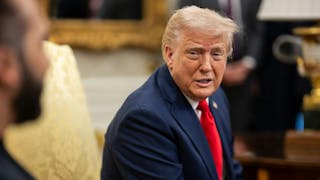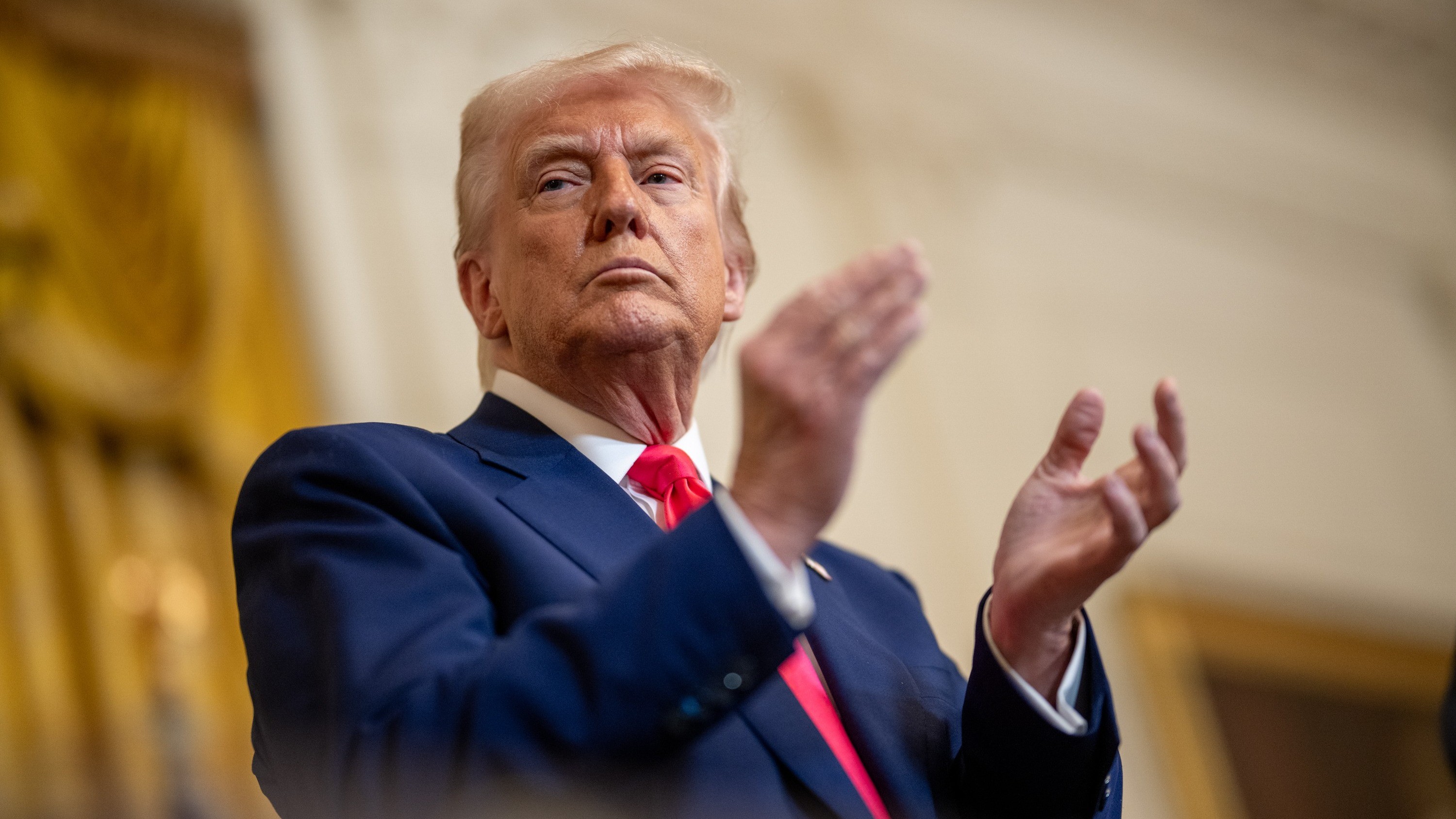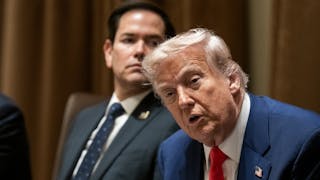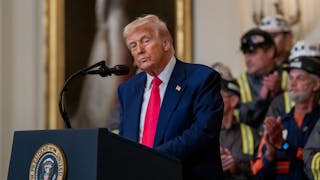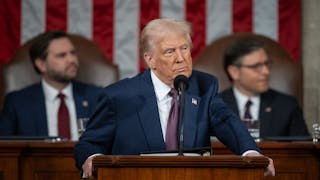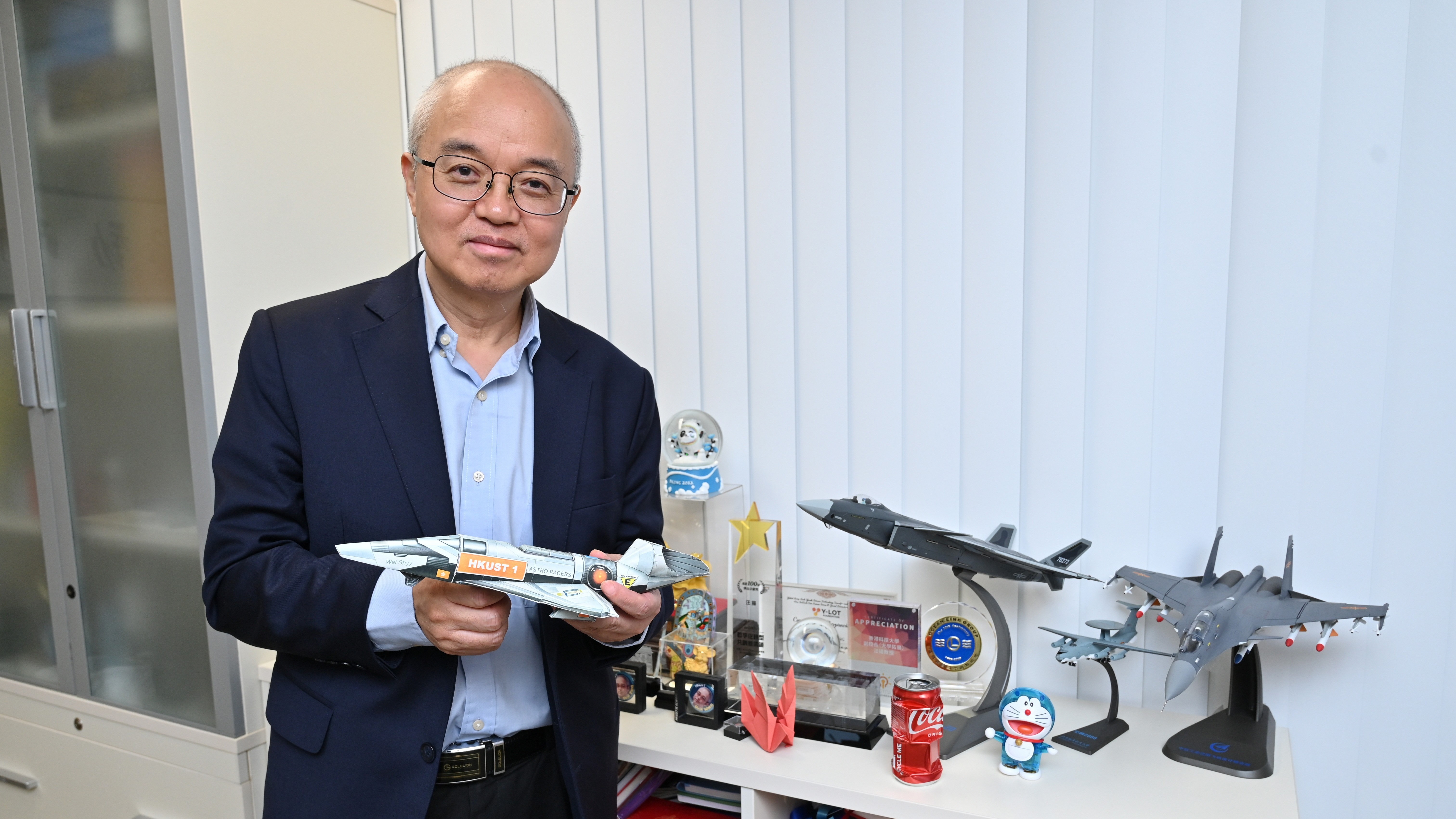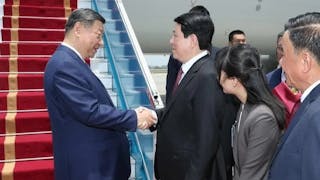北約理事會7月11日發表的華盛頓峰會宣言,不僅可以被視為對所謂俄羅斯「擴張主義」的回應,而且也標誌着一場新冷戰的開始,這場新冷戰將世界分為兩個陣營──一個由美國及其盟友領導;另一個由中俄及其盟友領導。
北約指中國 是俄烏戰爭「決定性推動者」
北約慶祝成立75周年,在美國華盛頓舉行的峰會宣言主要內容如下:
首先,它誓言要成為應對一切威脅的「防禦聯盟」,並捍衛「威懾與防禦、危機預防和管理、合作安全三大核心任務」。個人自由、人權、民主和法治是北約國家的共同價值。
第二,歡迎芬蘭和瑞典的加入,這將使聯盟更加牢固。
第三,它譴責俄羅斯「全面入侵烏克蘭」,破壞了歐洲─大西洋地區的和平與安全,破壞了全球安全。
第四,它批評中國懷有挑戰北約利益、安全和價值觀的「野心和脅迫性政策」。具體而言,「俄羅斯和中華人民共和國之間不斷深化的戰略夥伴關係,以及兩國共同試圖破壞和重塑基於規則的國際秩序的企圖,令人深感擔憂」。
第五,北約加強對烏克蘭的威懾力和防禦能力,同時歡迎澳洲、日本、紐西蘭、南韓領導人作為夥伴參加北約峰會。
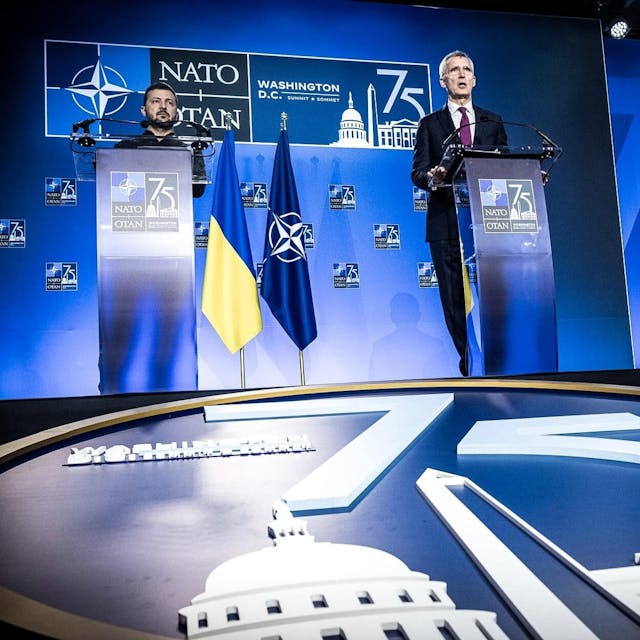
第六,呼籲成員國加大對北約行動的投入,增加貢獻度。
第七,北約應對所有威脅的威懾和防禦,將透過高度戒備的部隊、大規模訓練、緊急行動、有效指揮、具彈性的後勤,以及將太空和海底基建設施納入其規劃、演習和行動中來鞏固。
第八,北約防空反導一體化的防禦體系有待更新和加強。
第九,北約宣稱核威懾是其聯盟安全的基石。
第十,北約將加強跨大西洋國防和工業合作、集體韌性,以抵禦國家和非國家行為者採取侵略性混合戰術的「脅迫」。
北約峰會宣言嚴厲譴責俄羅斯,認為俄羅斯對烏克蘭的「侵略」是「公然違反國際法」。北約呼籲俄羅斯從摩爾多瓦和格魯吉亞撤軍,同時與莫斯科保持溝通,以降低風險並防止戰爭升級。北約又譴責俄羅斯在白俄羅斯部署核武器,以及在烏克蘭戰爭中使用化學武器。
北約宣言還批評北韓和伊朗「透過向俄羅斯提供直接軍事支持,助長俄羅斯對烏克蘭的侵略戰爭」。
最重要的是,北約宣言指責中國是俄烏戰爭的「決定性推動者」,並與莫斯科建立了「無上限」夥伴關係。宣言呼籲中國「停止對俄羅斯戰爭努力的一切物質和政治支持」,例如向俄羅斯國防部門轉移武器零件和原材料等軍民兩用材料。
中國:敦促北約不要「搞亂亞太」
中國迅速對北約宣言作出反應,指其「毫無道理,用心險惡」,並敦促北約不要「搞亂亞太」。中國外交部補充說,中國與俄羅斯的貿易是基於世界貿易組織的規則。中國也支持俄羅斯關於北約東擴對俄羅斯構成安全威脅的論點。俄羅斯特別軍事行動進入烏克蘭,引發了北約的強硬聲明。
北約宣言發表之際,中國在白俄羅斯舉行聯合軍演,地點在白俄羅斯與北約成員國波蘭的邊界附近,似乎引起了北約的地緣政治和安全敏感性。白俄羅斯是俄羅斯的盟友。
分析來說,北約的聲明不僅是對俄烏戰爭的回應,也是回應普京在上海合作組織元首理事會會議上的言論。在哈薩克舉行的上合組織會議上,普京要求烏克蘭從俄羅斯佔領的土地上撤軍,而中國最近的和平建議並沒有真正觸及任何烏克蘭領土的命運和歸還烏克蘭。在最近舉行的上合組織會議上,普京還說,烏克蘭不應利用停火之機透過軍事動員來補充軍隊。
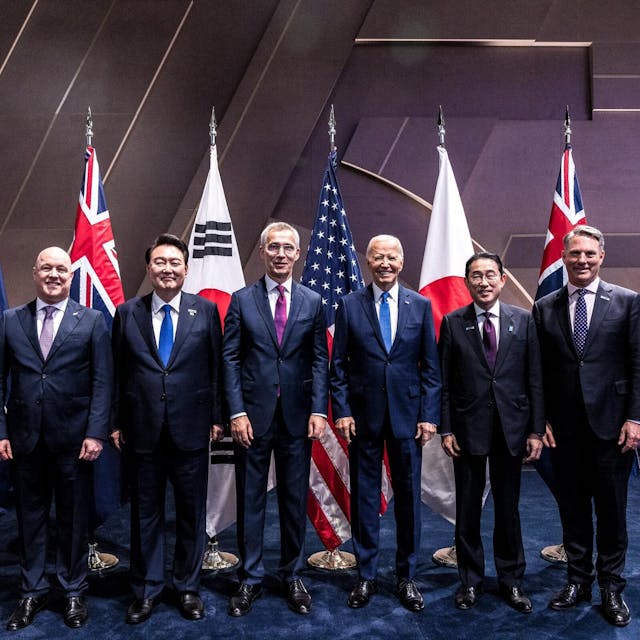
俄羅斯已經拒絕了土耳其在莫斯科和基輔之間進行調停的提議。普京強調基輔應將有爭議的烏克蘭州份移交給莫斯科,這無疑是對北約的挑釁,而北約發表這樣的宣言可說是不難理解的。
北約的宣言與普京最近在金磚國家峰會上的講話不謀而合,他呼籲金磚國家將在多極世界中發揮關鍵作用。這種呼籲挑戰了前蘇聯解體後美國所設想的單極世界的理想。最近透過吞併克里米亞和佔領烏克蘭領土而出現的大俄羅斯,對北約構成了嚴重的安全威脅。
金磚國家之一的印度尋求和平解決烏克蘭危機。總理莫迪與普京交談,稱戰爭導致無辜兒童死亡──這是人道主義的言論,但普京似乎並未對此表示擔憂。或許,印度作為一個西式民主意識形態和獨立外交政策的國家,能夠同時為美國主導的集團和中俄聯盟所接受,印度可以進一步深入思考解決烏克蘭危機的和平建議的內容。
北約宣言彷彿開始國際政治新冷戰
北約宣言也可以被視為國際政治新冷戰的開始。其內容指出了中國、北韓、伊朗和白俄羅斯在支持俄羅斯方面所扮演的角色──這是兩個意識形態和軍事集團從現在開始相互對抗的跡象。由32個成員國組成的北約,其宣言似乎為一些西方國家,尤其是美國,提供了「合法性」,可以對那些被認為向俄羅斯軍事工業提供軍民兩用材料的中國公司實施制裁。
在北約宣言發表之前,匈牙利作為歐盟成員國就曾表示,不希望北約成為「反華集團」,也不會支持北約的行動。匈牙利總理歐爾班維最近會見了中國國家主席習近平,討論了解決烏克蘭衝突的和平倡議。匈牙利認為,烏克蘭加入北約將帶來俄羅斯與北約之間發生公開衝突的真正風險──事實上,這是一種非常危險的情況,可能會引發第三次世界大戰。
因此,北約及其西方盟國將如何處理烏克蘭加入北約的企圖仍有待觀察。對俄羅斯來說,烏克蘭要不是緩衝國,就是獨立於北約影響的衛星國──烏克蘭和北約目前確實拒絕接受這種情況。
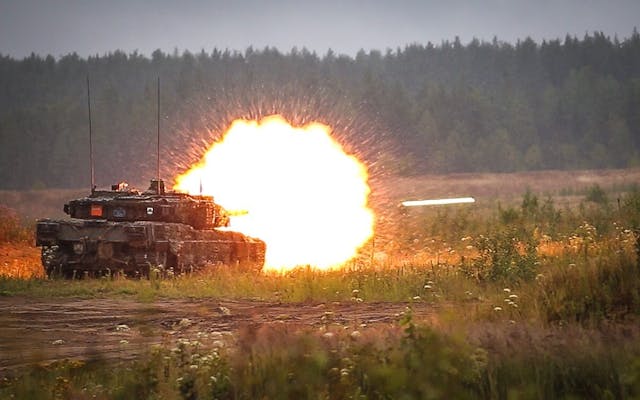
北約秘書長斯托爾滕貝格表示,北約對基輔的支持,不會使北約成為烏克蘭衝突的一方。相反,北約的支持將幫助烏克蘭維護其自衛權。然而,這一說法遭到了俄羅斯的反駁,俄羅斯認為北約成員國向烏克蘭提供武器已經是北約「擴張主義」的跡象。
北約宣言挑釁中國的是,北約將與澳洲、日本、紐西蘭和南韓討論安全合作,中國和北韓認為此舉是北約「擴張主義」染指東亞安全態勢的又一跡象。
顯然,世上不同意識形態、地緣政治和軍事的兩個集團正在形成,一個包含北約、歐盟成員國(儘管匈牙利被視為親中國和親俄羅斯)、澳洲、紐西蘭、日本和南韓;另一個包括俄羅斯、中國、北韓、伊朗、白俄羅斯和上海合作組織成員國。
北約宣言也許可以被視為一種現象,顯示了在前蘇聯解體後不久,從美國領導的單極世界,到由許多快速崛起的經濟軍事強權組成的多極世界,尤其是俄羅斯、中國、伊朗甚至北韓,持續、艱巨和不懈的國家權力鬥爭。
東亞地區恐面臨軍事衝突風險
如果中國和北韓對北約與澳洲、紐西蘭、日本和南韓的密切合作產生負面看法,東亞地區可能會面臨突發軍事衝突的風險。在與中國就南海偏遠島礁主權有爭議的情況下,菲律賓已經變得更加親美。馬尼拉與日本軍事關係改善,也引起了北京的不滿。
鑑於北韓和俄羅斯最近軍事關係的鞏固,以及日本在美國的支持下加強軍備以應對中國和北韓的軍事威脅,東亞的安全局勢注定會變得更加動盪、不穩定和軍事化。中美在台灣問題上的爭端加劇了不穩定的局勢,台灣的未來引發了日本的軍事和安全疑慮。
各國對全球「擴張主義舉動」的彼此看法,已成為新冷戰迫在眉睫的關鍵因素。如果中國被簡單地貼上俄羅斯所領導集團一部分的標籤,那麼中國作為烏克蘭衝突潛在調解者的能力就已經受到限制,除非中國採取一種極不可能的方式在經濟上與俄羅斯保持距離。
也許幸運的是,在北約宣言發表後不久,美國和俄羅斯的國防部長就通話討論了他們共同關心的問題;也許世界上所有國家都應該維持和加強軍事外交,以最大限度地減少、遏制或預防世界不同地區的任何重大軍事衝突。
總之,北約宣言已經為世界即將到來的新冷戰奠定了基礎。如果烏克蘭危機成為不必要的第三次世界大戰的先兆,而第三次世界大戰將導致不同國家迅速對抗,同時令軍事集團日益鞏固,那麼國家和軍事領袖缺乏有效的外交,將為世界帶來極高的代價。讓我們希望,未來幾年,兩大集團的軍政領袖會尋求外交解決方案來解決領土爭端,特別是烏克蘭戰爭方面,能夠展現出更強大的政治解決意願。
Towards a New Cold War: NATO Declaration in response to Russian expansionism
The Washington Summit Declaration made by the NATO Council on July 11 can be seen as not only a response to the perceived Russian “expansionism” but also an inception of a new Cold War dividing the world into two blocs – one led by the US and its allies and the other composed of Russia and China and their allies.
Celebrating the 75th anniversary of NATO, the Washington Summit Declaration covers the following main points:
First, it vows to be a “defensive alliance” against all threats and to protect the “three core tasks of deterrence and defence, crisis prevention and management, and cooperative security.” The shared values of NATO nations are individual liberty, human rights, democracy, and the rule of law.”
Second, it welcomes the accession of Finland and Sweden that makes the alliance stronger.
Third, it denounced Russia’s “full-scale invasion of Ukraine” as shattering peace and security in the Euro-Atlantic area and undermining global security.
Fourth, it criticises China for harbouring “ambitions and (having) coercive policies” that challenge NATO’s interests, security, and values. Specifically, “the deepening strategic partnership between Russia and the People’s Republic of China and their mutually reinforcing attempts to undercut and reshape the rules-based international order are a cause for profound concern.”
Fifth, it strengthens the deterrence and defence of Ukraine while welcoming the leaders of Australia, Japan, New Zealand, and South Korea to join NATO as partners.
Sixth, it appeals to member nations to invest more in NATO operations and to increase their contributions.
Seventh, NATO’s deterrence and defence against all threats will be consolidated with high readiness forces, large-scale training, urgent actions, effective command, resilient logistics, and the integration of space and undersea infrastructure into its planning, exercises, and operations.
Eighth, the integrated air and missile defence of NATO is to be updated and enhanced.
Ninth, NATO declares that nuclear deterrence is its cornerstone of alliance security.
Tenth, NATO will enhance transatlantic defence and industrial cooperation, collective resilience, and the defence against aggressive hybrid action from state and non-state actors.
The Declaration is very critical of Russia, whose “aggression” against Ukraine is “a blatant violation of international law.” It calls for Russia to withdraw military forces from the Republic of Moldova and Georgia, while maintaining communication with Moscow to mitigate risks and prevent the escalation of war. NATO denounces Russia’s strategy of nuclear weapons in Belarus and its usage of chemical weapons in the Ukraine war.
The Declaration also criticises North Korea and Iran for “fueling Russia’s war of aggression against Ukraine by providing direct military support to Russia.”
Most importantly, the NATO Declaration accuses China of being “a decisive enabler” of Russia’s Ukraine war and of forming a “no-limits” partnership with Moscow. It appeals to China to “cease all material and political support to Russia’s war effort,” such as the transfer of dual-use materials like weapons and raw materials for Russia’s defence sector.
China’s response to NATO Declaration was swift, saying that it is “unreasonable with sinister motives” and asking the alliance not to bring about “chaos” in Asia. The Chinese Foreign Ministry added that China’s trade with Russia is based on the rules of World Trade Organization. China also supports Russia’s argument that NATO’s expansion poses a security threat to Russia, whose military move into Ukraine has brought about NATO’s strong Declaration.
The NATO Declaration coincided with the joint Chinese military exercise in Belarus, whose border with NATO member Poland appeared to arouse NATO’s geopolitical and security sensitivity. Belarus is Russia’s ally.
Analytically speaking, NATO’s Declaration was a response to not only Russia’s war in Ukraine, but also Vladimir Putin’s remarks at the SCO. In the SCO meeting in Kazakhstan, Putin demanded that Ukraine should withdraw its troops from those territories occupied by Russia, while China’s recent peace proposal has not really touched on the fate and return of any Ukrainian territory to Ukraine. In the recent SCO meeting, Putin added that Ukraine should not take advantage of any ceasefire to replenish its army through military mobilisation.
Russia has already turned down an offer by Turkey to mediate between Moscow and Kyiv. Putin’s emphasis that Kyiv should cede control over the disputed Ukrainian provinces to Moscow was a provocation to NATO whose Declaration was arguably understandable.
NATO’s Declaration coincided with Putin’s remarks at the recent BRICS Summit where he called for a multipolar world in which BRICS will play a key role. Such a call challenges the ideal of an unipolar world envisage and dominated by the US after the collapse of the former Soviet Union. The recent emergence of a Greater Russia, through its annexation of Crimea and its occupation of Ukrainian territories, has posed a serious security threat to NATO.
One of the BRICS members, India, has sought a peaceful resolution to the Ukrainian crisis. Prime Minister Narendra Modi talked to Putin, saying that wars cause the death of innocent children – a humanitarian remark that, however, did not appear to raise a concern from Putin. Perhaps as a nation whose ideologies of western-style democracy and independent foreign policy are acceptable to the bloc led by the US and that jointly led by Russia and China, India can ponder deeply further over the content of a peace proposal to resolve the Ukrainian crisis.
The NATO Declaration can also be seen as the emergence of a new Cold War in international politics. Its content points to the roles of China, North Korea, Iran, and Belarus in their support of Russia – a sign of two ideological and military blocs confronting each other from now onwards. The 32-member NATO Declaration appears to provide the “legitimacy” for some western nations, especially the US, to impose sanctions on those Chinese companies that are deemed to be providing dual-use materials for the Russian military arsenals.
Prior to the NATO Declaration, Hungary, as an EU member, asserted that it does not want NATO to become “an anti-China” bloc and that it will not support NATO’s moves. The Hungarian Prime Minister Viktor Orban has recently met Chinese President Xi Jinping to discuss a potential peace plan to tackle the Ukrainian conflicts. Hungary believes that Ukraine’s participation in NATO would create a real risk of open conflicts between Russia and NATO—indeed, a very dangerous scenario that would perhaps trigger a Third World War.
As such, it remains to be seen how NATO and its Western allies will handle Ukraine’s attempt at joining NATO. To Greater Russia, Ukraine has to be either a buffer state or a satellite state independent from NATO influence—a scenario rejected currently by Ukraine and NATO indeed.
NATO secretary-general Jens Stoltenberg said the alliance’s support for Kyiv will not make NATO a party to the Ukrainian conflicts. Rather, NATO’s support would help Ukraine uphold its right to self-defence. This argument, however, is rejected by Russia, which sees NATO members’ weapons provision to Ukraine as already a sign of NATO “expansionism.”
What provokes China in NATO’s Declaration is that NATO will discuss with Australia, Japan, New Zealand, and South Korea security cooperation—a move that is seen by China and North Korea as another sign of NATO “expansionism” into the East Asian security dynamics.
Clearly, two ideological, geopolitical, and military blocs of the world are taking shape, one including NATO, EU members (although Hungary is seen as “pro-China” and “pro-Russia”), Australia, New Zealand, Japan, and South Korea, while the other side embraces Russia, China, North Korea, Iran, Belarus, and SCO members.
The NATO Declaration can perhaps be viewed as a phenomenon showing an ongoing, difficult transition and persistent national power struggles from a previously unipolar world led by the US shortly after the collapse of the former Soviet Union to a new multipolar world consisting of many rapidly rising economic-military powers, notably Russia, China, Iran, and even North Korea.
If NATO’s closer cooperation with Australia, New Zealand, Japan, and South Korea is perceived negatively by China and North Korea, the East Asian region will likely encounter the risks of sudden military conflicts. The Philippines has already become more pro-US amid its disputes with China over the sovereignty of remote islands and reefs in the South China Sea. Manila’s improved military relations with Japan have also raised the eyebrows of Beijing.
Given the recent consolidation of military relations between North Korea and Russia, and given Japan’s military rearmament with US support in response to perceived military threats from China and North Korea, the security circumstances in East Asia are destined to become more volatile, unstable, and militarily unpredictable. Compounding the unstable circumstances is the Sino-US disputes over the question of Taiwan, whose future has triggered military and security concerns from Japan.
The mutual perceptions of nations on their “expansionist moves” here and there in the world has become a crucial factor leading to the looming new Cold War. If China is labelled unsophisticatedly as part of the Russia-led bloc, its potential and capability as a mediator in the Ukrainian conflicts are already curbed, unless China adopts a very unlikely scenario of distancing itself economically from Russia.
Fortunately, perhaps, shortly after the NATO Declaration, the military and defence leaders from the US and Russia have met to discuss their issues of common concerns. Perhaps the military diplomacy of all nations in the world should be maintained and enhanced to minimise, contain, or pre-empt any major military conflicts in different parts of the world.
In conclusion, the NATO Declaration has already set the stage for a looming new Cold War in the world. The lack of effective diplomacy conducted by national and military leaders can and will be extremely costly to the world if the Ukrainian crisis becomes a harbinger of an unnecessary Third World War that would involve different nations in rapidly confrontational and increasingly solidifying military blocs. Let us hope that political and military leaders of the two blocs will develop their stronger political will in the quest for diplomatic solutions to resolve territorial disputes, especially the Ukraine war, in the coming years.
原刊於澳門新聞通訊社(MNA)網站,本社獲作者授權轉載。原文網址:https://www.macaubusiness.com/opinion-towards-a-new-cold-war-nato-declaration-in-response-to-russian-expansionism/



